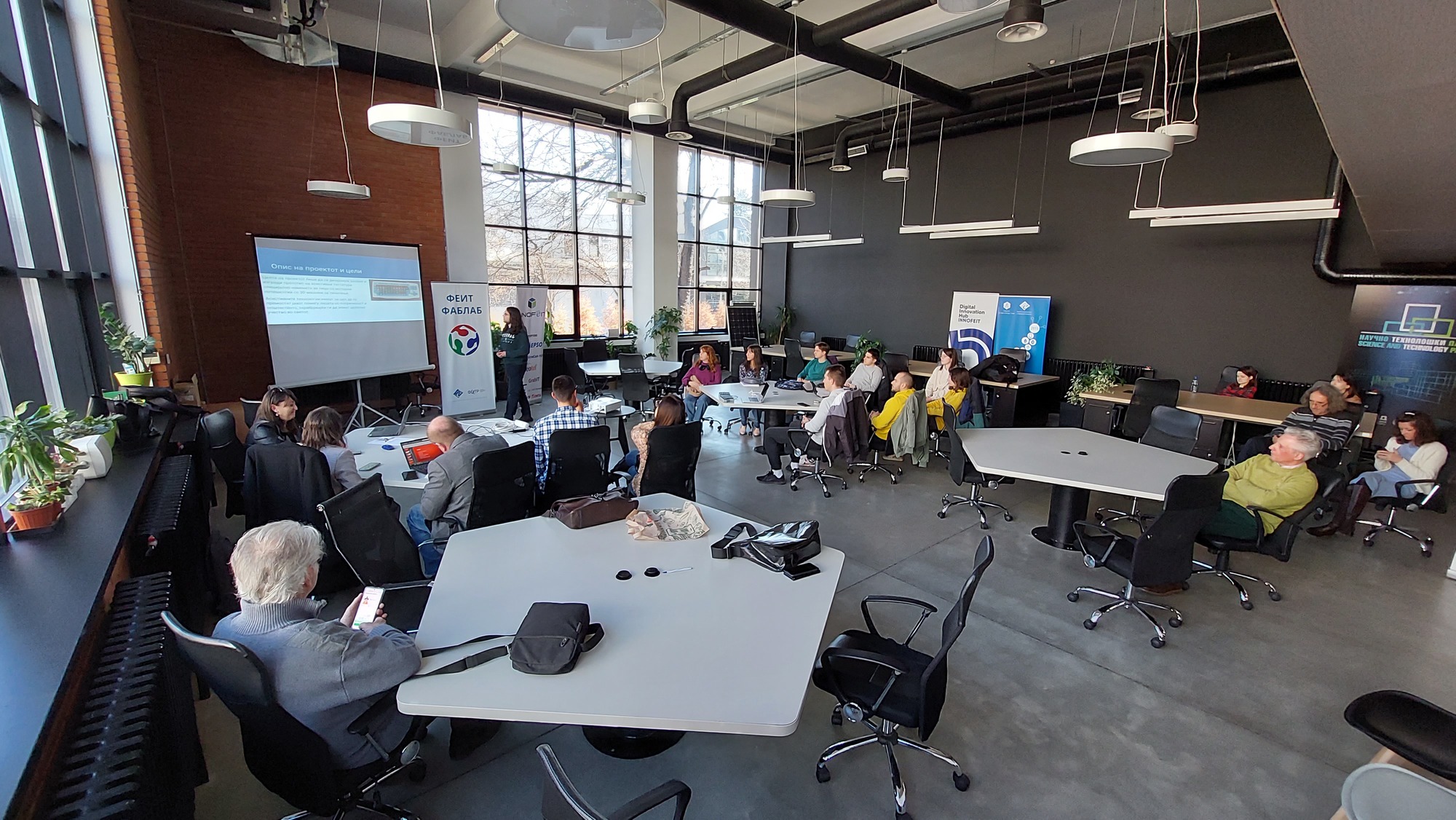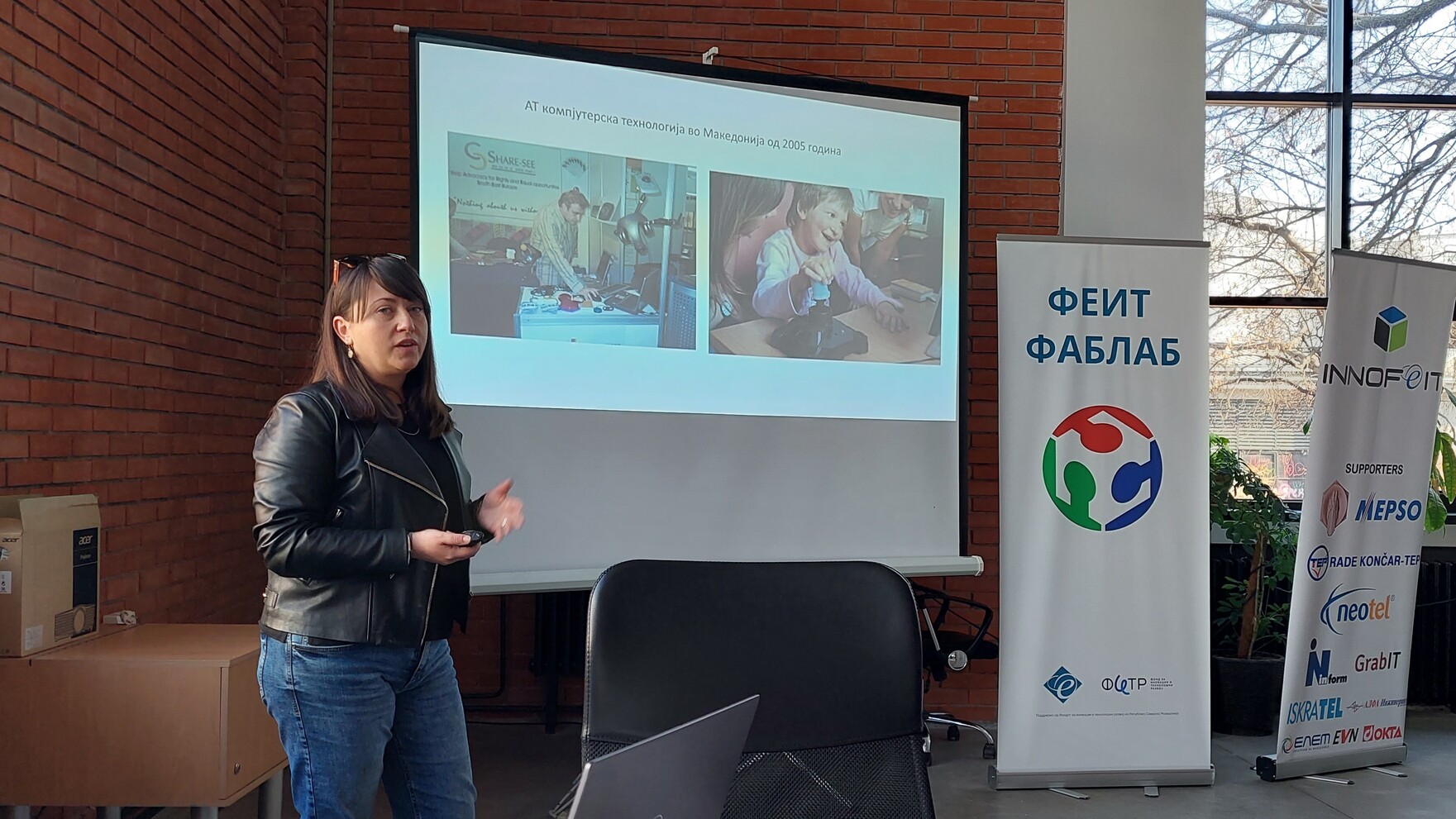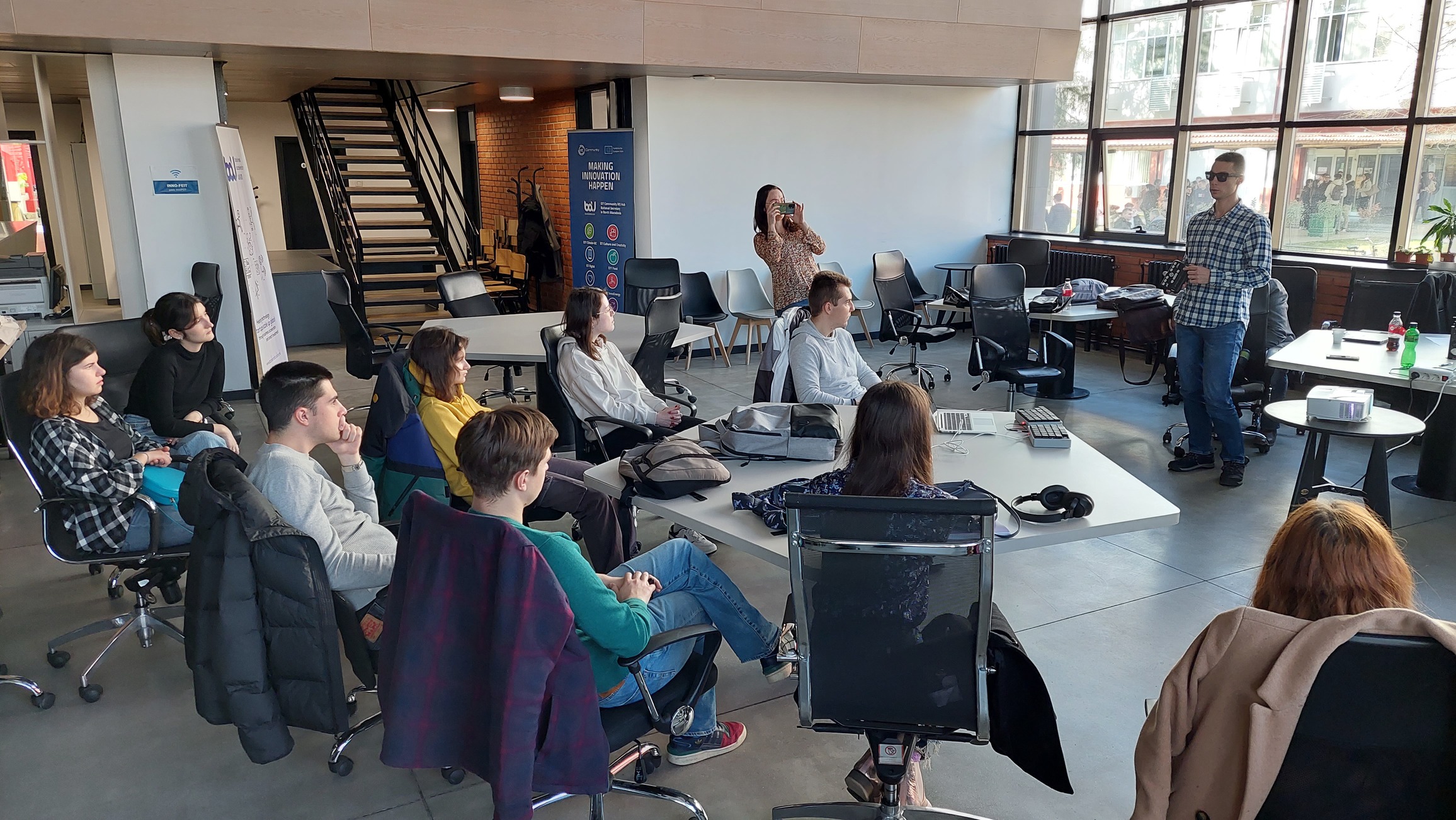FEEIT FabLab and the Association for Assistive Technology “Open the Windows” organized the event “Universal Design, Accessibility and Assistive Technology” which took place on 22/02/2024 at INNOFEIT. During the event, a series of speakers from the Association, as well as professors and students of FEIT, gave their presentations.

In their presentation “Assistive keyboard – from design to reality”, Martin Milanovski, student at FEEIT and Danche Todorovska from Open the windows presented the Assistive keyboard realized by the team of FEIT students that included Vladimir Kitanovski and Marko Zajkov. The team was led by assistant Nikola Jovanovski from the Institute of Electronics. The keyboard was developed within the INNO-SAE 2023 multidisciplinary student innovation program.


Toni Bachvarovski, co-founder Open the Windows, spoke about Assistive Technology and Universal Design. According to him, universal design is especially important in creating products, because only in this way can they be accessible and useful to the widest range of people, regardless of their age, ability or disability.

Margarita Gulevska presented the use of assistive technology in Macedonia and showcased the work of Open the Windows, established in 2005 and working on the active application, promotion and introduction of assistive technology in preschool and primary education. She noted that improvisation and resourcefulness are key, as specialized products are only available abroad and are very expensive. According to Gulevska, cooperation with FEEIT can result in products from which some will learn and others will benefit.

Kristijan Lazarev spoke about the importance of digital inclusion, and the way people with disabilities use technology. Through a hands-on demonstration, the audience was able to witness how screen readers and speech synthesis can work together to enable smartphone use and access to online content such as YouTube. Additionally, digital interfaces that work with Braille writing system were also demonstrated. At the end, Lazarov gave recommendations for incorporating inclusivity in the development of software systems and applications.

FEIT nurtures areas that are key in the design and realization of assistive devices: electrical engineering, electronics, sensors, microcontrollers, the processing of biomedical signals, speech, imaging, and software tools and systems. Professor Branislav Gerazov presented some of the projects that FEEIT students realized in the long-term cooperation with Open the Windows in the field of assistive technologies. Among them were prototype systems for obstacle detection for the blind, wheelchair control with gaze, sign language synthesis from input text, as well as the Govorko communication app. With the support of UNICEF, the Group for Speech Technologies at FEEIT participated in the localization of the Cboard communicator to Macedonian, for which purpose it developed a new voice for Macedonian speech synthesis – Suze .
The event was supported by the Macedonian section of the IEEE through its chapters: joint chapter for signal processing and engineering in medicine and biology, joint chapter for electronic devices, instrumentation and measurements, semiconductor circuits, and the student departments, as well as the life members affinity group of IEEE.



